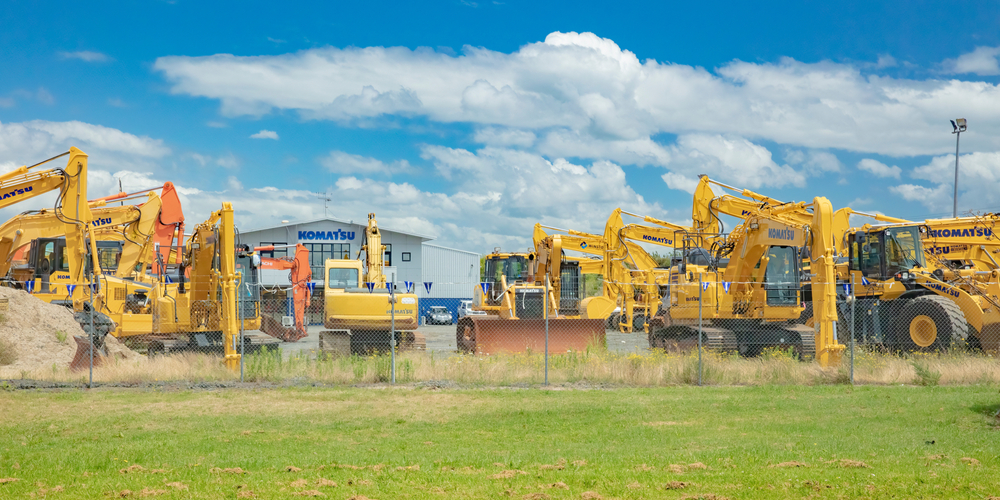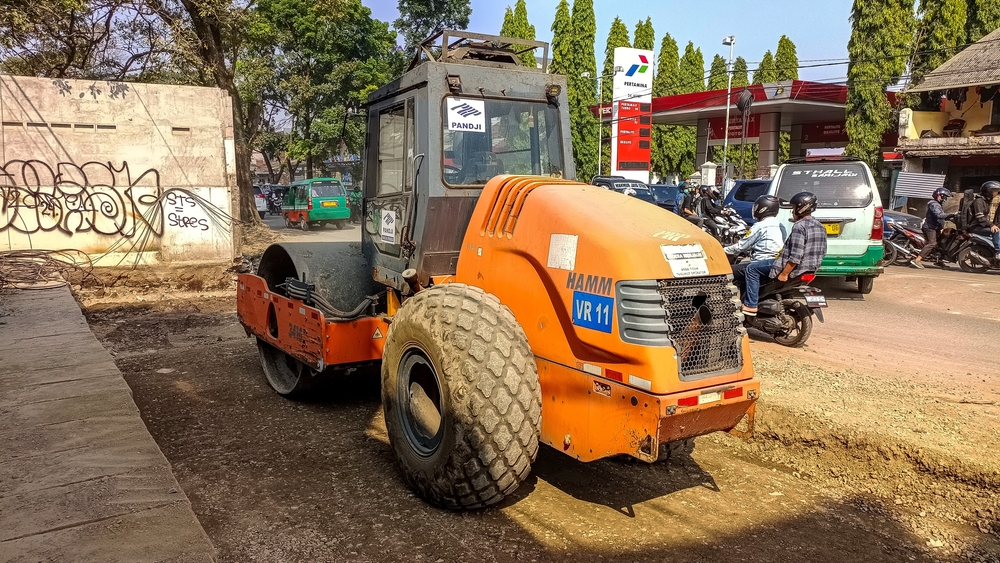For contractors, Staying abreast of heavy machine equipment trends about leveraging these advancements to elevate efficiency, productivity, and ultimately, the success of their projects. The construction industry is rapidly evolving, driven by technological innovations and new practices. This evolution is particularly evident in the domain of heavy machinery, where understanding current trends can make a significant difference in the robustness and reliability of equipment selection.
For those in the construction sector, being informed about these trends is like gaining a strategic advantage. It allows contractors to anticipate future developments, ensuring that their equipment choices are not only durable and dependable but also in line with the industry’s forward trajectory.
Embracing these trends means placing your business at the cutting edge of construction, equipped to handle projects with greater effectiveness and success.
Emerging Technologies in Heavy Machine Equipment
The heavy machine equipment sector is witnessing a revolutionary shift thanks to emerging technologies. These developments are redefining the standards of efficiency, precision, and safety within the construction industry.
1. Internet of Things (IoT)
- Integration: IoT technology integrates sensors and network connectivity in heavy machinery, enabling data collection and exchange.
- Real-time Monitoring: Contractors can monitor equipment performance in real-time, leading to enhanced operational efficiency and timely maintenance.
- Proactive Maintenance: IoT systems can preemptively alert operators to potential mechanical issues, helping to minimize downtime and repair costs.
2. Telematics
- Data Transmission: Telematics involves sending machine data to a central system for analysis.
- Insightful Analytics: It provides insights on fuel consumption, machine utilization, and operational patterns.
- Optimization: This information is vital for optimizing machine usage, reducing fuel costs, and improving project planning and management.
3. Automation
- Guided Machinery: Automated machinery, equipped with advanced algorithms and GPS technology, can execute tasks with minimal human input.
- Increased Precision: Automation allows for more precise operations in tasks like grading and excavating, substantially lowering error margins.
- Enhanced Safety: It reduces the necessity for human operators in potentially dangerous conditions, thereby improving safety.
Sustainable Practices in Heavy Machine Equipment
Sustainability is becoming increasingly necessary in the construction industry, reflecting a global shift towards environmental responsibility. This change is prominently visible in the realm of heavy machine equipment, where sustainable practices are not just a trend but a necessity.
Eco-Friendly Machinery
The trend towards eco-friendly heavy machinery is gaining momentum. Manufacturers are now focusing on producing equipment that emits lower levels of pollutants, aligning with stricter environmental regulations. This shift is evident in the development of machines with improved emission control systems, reducing the carbon footprint of construction projects.
Fuel Efficiency
Fuel efficiency is another significant aspect of sustainable practices in heavy machinery. Fuel-efficient equipment not only reduces environmental impact but also lowers operational costs for contractors. Innovations such as advanced engine designs and hybrid power systems are playing a pivotal role in making heavy machinery more fuel-efficient.
Renewable Energy Solutions
Renewable energy solutions are also making their way into the heavy machinery sector. Equipment powered by alternative energy sources like electricity or hydrogen fuel cells are emerging, offering a cleaner, more sustainable option for construction operations. These renewable energy solutions not only help reduce greenhouse gas emissions but also offer long-term cost savings by decreasing reliance on fossil fuels.
Adopting sustainable practices in heavy machine equipment benefits contractors by aligning their operations with environmental standards and improving their public image. It also contributes significantly to environmental conservation, reducing the overall ecological footprint of construction projects.
Digitalization and Data Analytics in Heavy Machine Equipment
The construction industry is undergoing a significant shift due to digitalization, particularly in managing and operating heavy machinery.
Predictive Maintenance
Data analytics plays a crucial role in predictive maintenance, offering insights that help anticipate and address potential equipment issues. This approach allows contractors to proactively manage maintenance, preventing equipment failure and downtime.
Equipment Optimization
Digitalization aids in analyzing how equipment is used, pinpointing inefficiencies and optimal usage patterns. This leads to better fuel economy, reduced wear and tear, and improved overall performance.
Performance Monitoring
Using digital tools, contractors can gain a comprehensive view of their equipment’s performance. These tools ensure that every piece of equipment operates at its full potential, enhancing project efficiency.
Numerous construction projects worldwide showcase the successful implementation of digital solutions in heavy machinery. Examples include the adoption of GPS and telematics for real-time equipment tracking and the use of digital twins for advanced simulation and analysis.
Future Outlook and Predictions
One of the key trends is the continued rise of automation and robotics. Automated equipment, capable of performing tasks with minimal human intervention, is expected to become more prevalent, driving efficiency and safety on construction sites.
Contractors must prepare for these future developments to remain competitive. This preparation involves investing in training and upskilling workers to handle new technologies, staying informed about industry advancements, and being adaptable to integrate new tools and methods into their operations.
However, embracing these upcoming technologies is not without challenges. One of the main hurdles is the significant investment required in upgrading or acquiring new equipment.
Additionally, there’s the challenge of data security and privacy, as reliance on digital technologies increases.
Despite these challenges, the opportunities are substantial. Contractors who successfully navigate these changes will not only benefit from improved operational efficiency but will also position themselves as industry leaders, ready for the future of construction.
Conclusion
The construction industry is ever-evolving, and staying abreast of these changes is essential for maintaining a competitive edge and ensuring efficiency. While embracing these advancements may require significant investment and adapting to new security concerns, the benefits in terms of efficiency, sustainability, and cost savings are substantial.
For those keen to stay ahead of the curve and explore cutting-edge equipment solutions, ESP Ltd offers a comprehensive range of heavy machine equipment designed to meet the modern demands of construction.
We invite our readers to discover our products and services and join us in moving towards a more efficient, sustainable, and technologically advanced future in construction.









